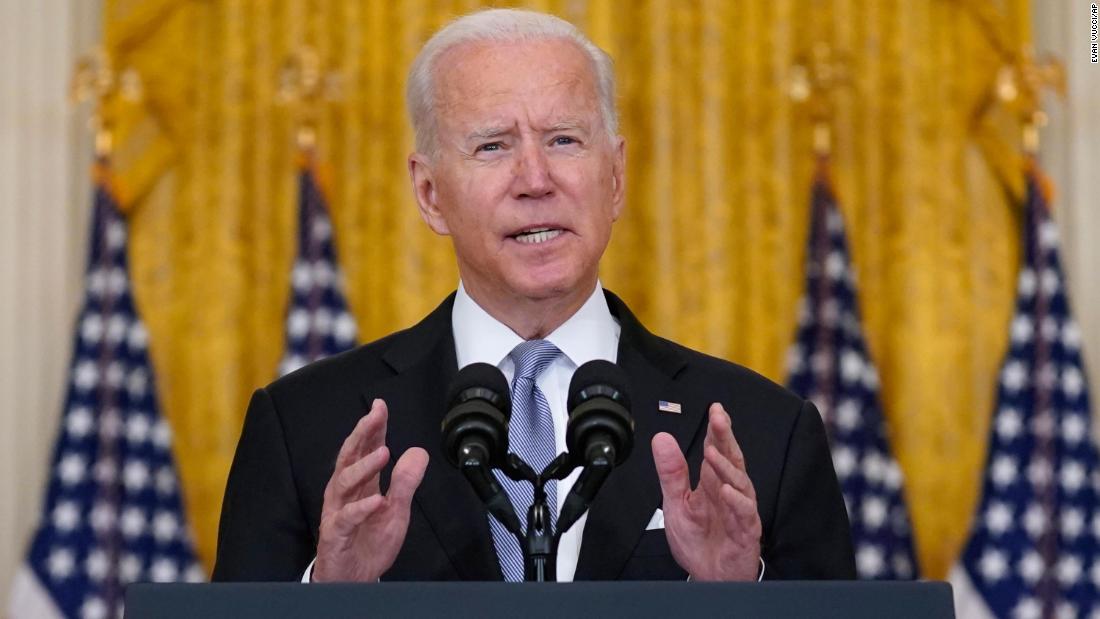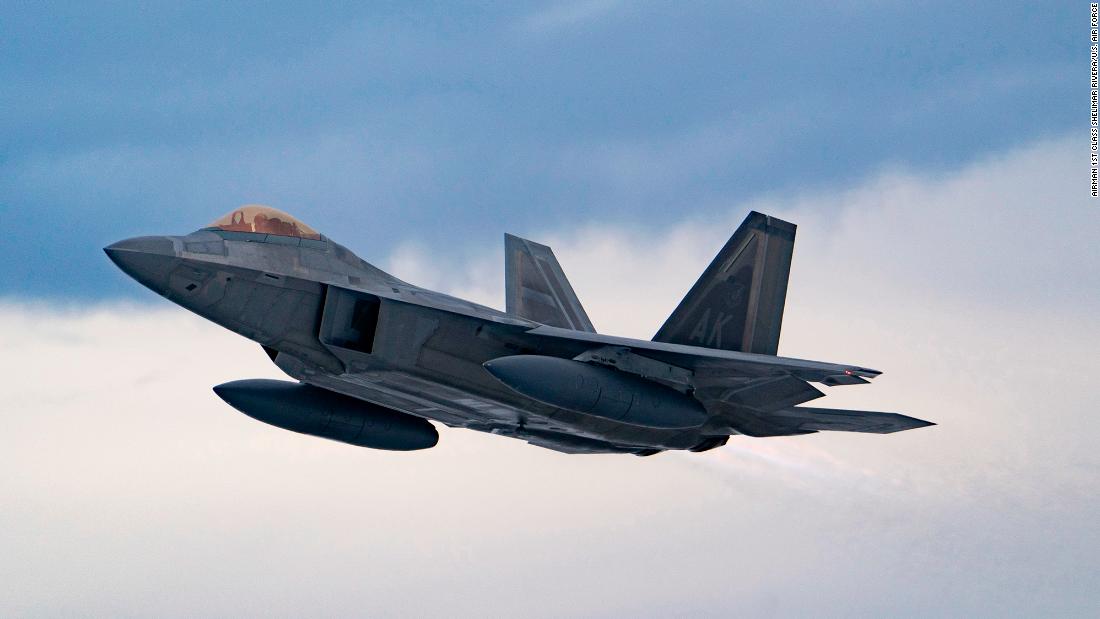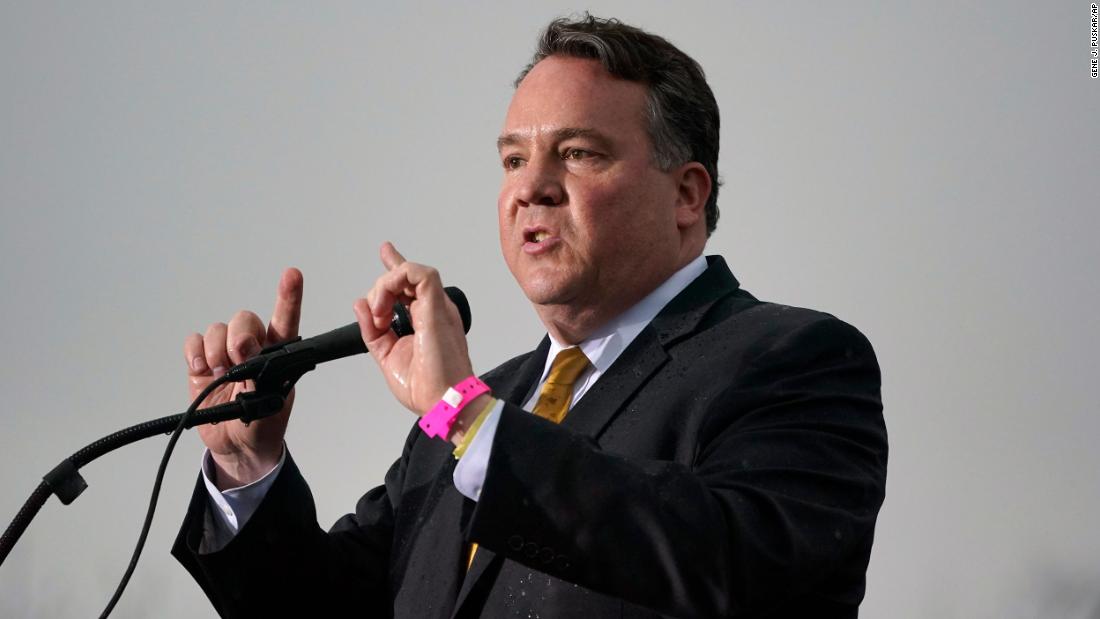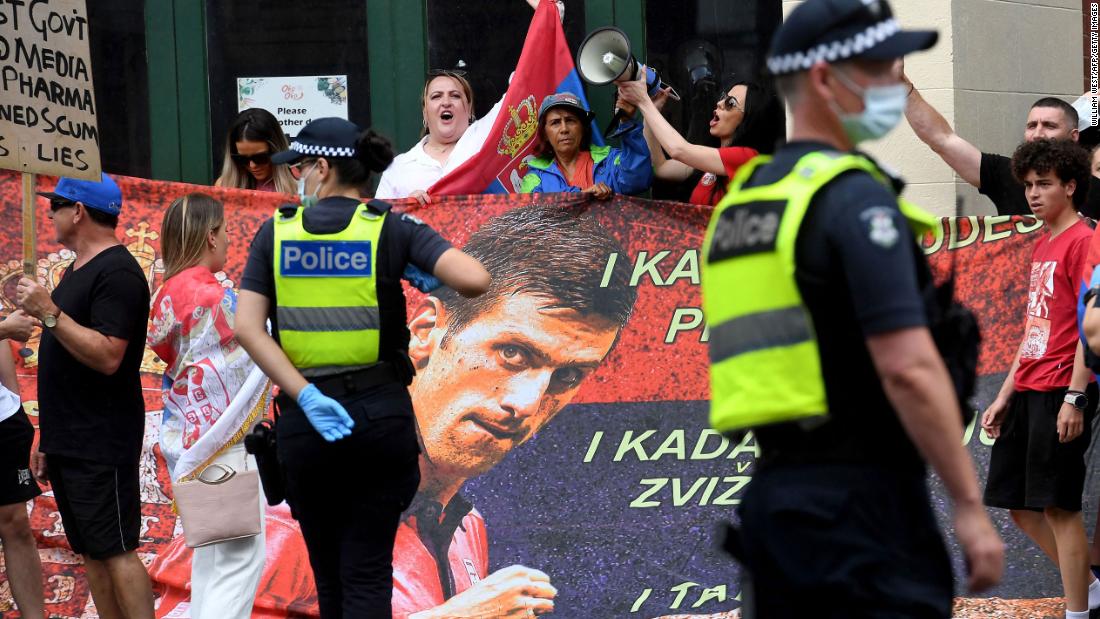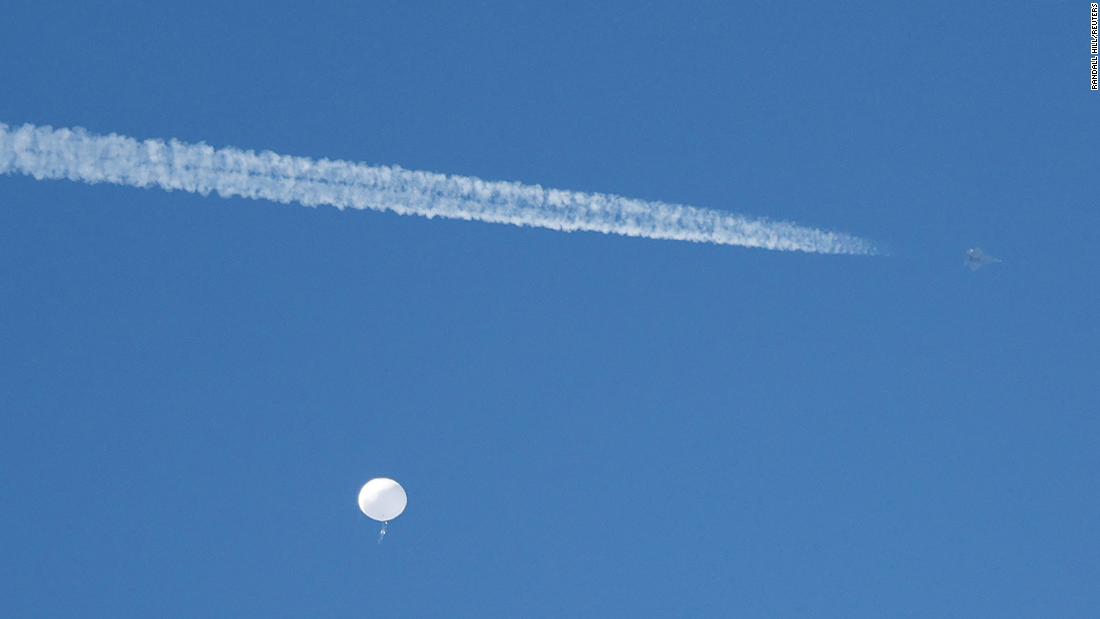Catch up the latest on the war in Ukraine
10 min agoRussian and Chinese foreign ministers meet in Tunxi, ChinaFrom CNN's Sophie JeongRussian Foreign Minister Sergey Lavrov and Chinese Foreign Minister Wang Yi meet in Tunxi, China, on March 30. (Ministry of Foreign Affairs of Russia)Russian Foreign Minister Sergey Lavrov and Chinese Foreign Minister Wang Yi met Wednesday in Tunxi, China, according to a photo released by Russia's Ministry of Foreign Affairs.In the photo, the two are seen wearing masks and greeting each other by bumping elbows. 8 min agoHow one Ukrainian IT specialist exposed a notorious Russian ransomware gangFrom CNN's Sean LyngaasAs Russian artillery began raining down on his homeland last month, one Ukrainian computer researcher decided to fight back the best way he knew how — by sabotaging one of the most formidable ransomware gangs in Russia.Four days into Russia's invasion, the researcher began publishing the biggest ever leak of files and data from Conti, a syndicate of Russian and Eastern Europe cybercriminals wanted by the FBI for conducting attacks on hundreds of US organizations and causing millions of dollars in losses.The thousands of internal documents and communications include evidence that appears to suggest Conti operatives have contacts within the Russian government, including the FSB intelligence service. That supports a longstanding US allegation that Moscow has colluded with cybercriminals for strategic advantage.The Ukrainian behind the leak spoke exclusively to CNN and described his motivation for seeking revenge after Conti operatives published a statement in support of the Russian government immediately after the invasion. He also described his desperate efforts to track down loved ones in Ukraine in recent weeks."I cannot shoot anything, but I can fight with a keyboard and mouse," he told CNN.To protect his identity, CNN agreed to refer to him by a pseudonym: Danylo.Read the full story here: 1 hr 17 min agoThis was their beloved home. But life in these Ukrainian towns will never be the sameFrom CNN's Mariya Knight, Sharif Paget and Travis CaldwellInna Sheremet remembers fondly walking her dog every day in the forests of Bucha, having lived in Ukraine her entire life.But on February 24, at 5 a.m., she heard the explosions.“I packed my things, took the dog and left,” Sheremet told CNN, escaping before her fifth-floor apartment was shelled and destroyed.The life she once led — visiting friends, grilling kebabs next to her house, cycling around the city — was gone. “My whole life before the war is destroyed,” Sheremet said. “All I have left is a small bag of clothes and a dog.”CNN spoke with those who have had their entire lives uprooted since the war began more than a month ago. Their stories of the scarred landscapes where their hometowns once stood show how much has already been lost. But also what they’re fighting to protect, as Ukrainian forces continue to defy the Russian advance. Here’s what they have to say.See their photos and read the full story here:2 hr 30 min agoAnalysis: Putin's lies and carnage cloud hopes for an end to Ukraine warAnalysis from CNN's Stephen CollinsonRussia insisted for weeks when massing more than 100,000 troops on Ukraine's borders that it had no plans to invade. Then it did. So it's not surprising that deep skepticism greeted its Tuesday announcement of a scaled-back offensive.The US — like everyone — is desperate for a de-escalation of Moscow's onslaught, for humanitarian reasons and because it could ease fears of a spill-over US war with Russia.But the experience of President Vladimir Putin's previous lies and propaganda, and of his brutality, clouded the first signs of progress between Ukrainian and Russian negotiators in Turkey. The treacherous path any ceasefire or peace deal would face, first to be implemented and then to become permanent, also tempered optimism in the West and Ukraine.In the Cold War, the famous US mantra after nuclear arms reduction deals with the Kremlin was "trust but verify." In this conflict, the approach is exactly the opposite — verify and distrust. The shift reflects the stark suspicion toward the Russian President following his two decades of anti-West leadership. It is also born of revulsion at vicious assaults on innocent civilians — in hospitals, apartment blocks and a theater used as a shelter — over the last month.Read the full analysis here:2 hr 39 min agoIt's 7a.m. in Kyiv. Here's what to knowRussia said Tuesday it will reduce troop numbers and military operations around the Ukrainian capital, Kyiv, and northern city of Chernihiv — but US and Ukrainian officials have expressed skepticism about Moscow's claims.If you're just joining us, here's the latest on the war in Ukraine: New images of destroyed cities: The full extent of the devastation in the city of Irpin is seen in new video taken by a Ukrainian NGO. It comes after Ukrainian forces pushed Russian troops out of the city in Kyiv's northwestern suburbs in the past 36 hours. Meanwhi
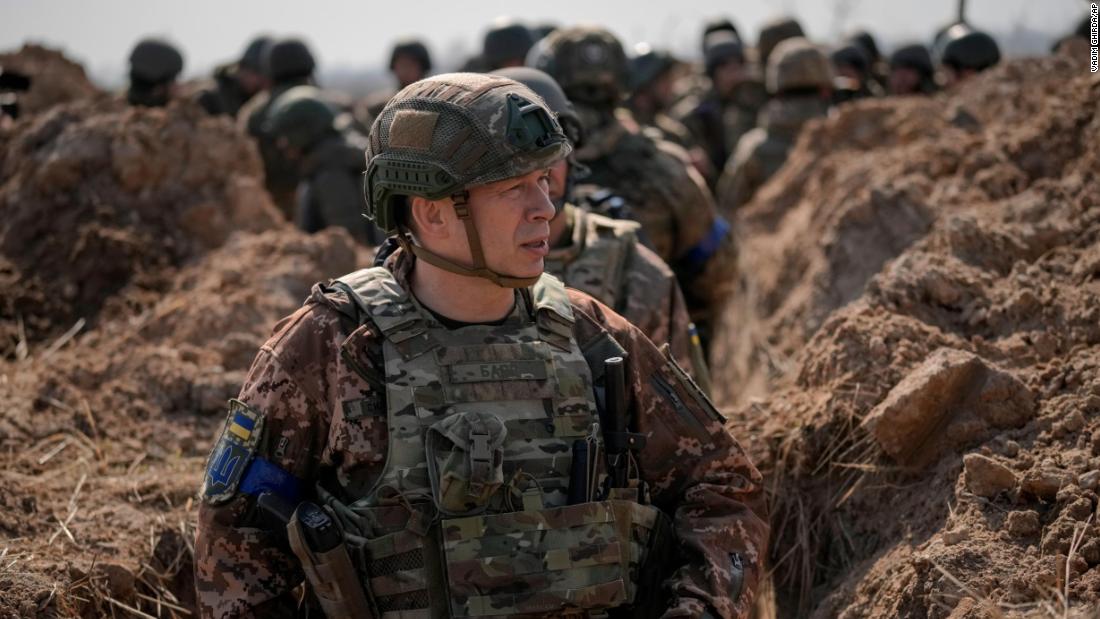
Russian and Chinese foreign ministers meet in Tunxi, China
From CNN's Sophie Jeong
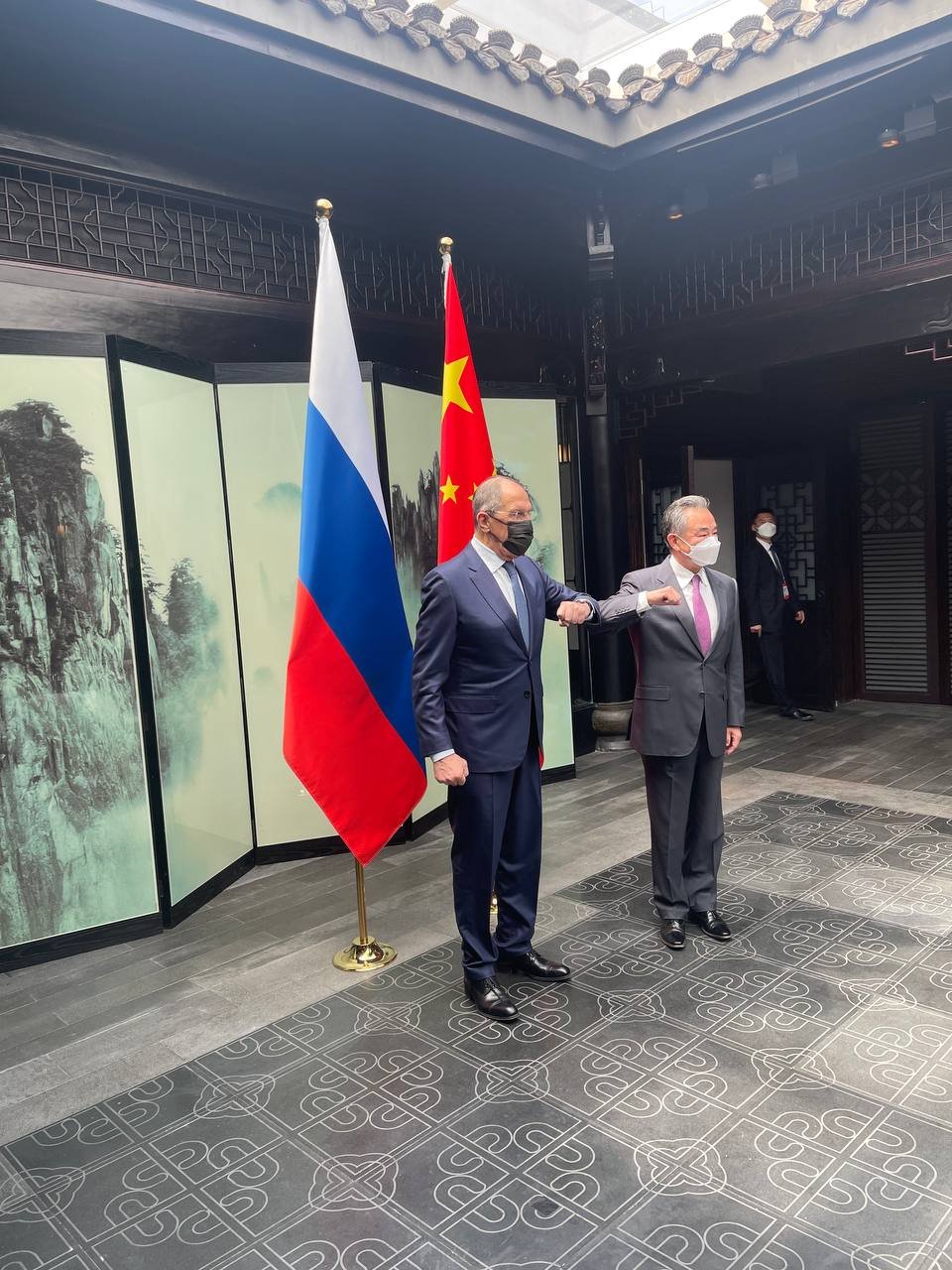
Russian Foreign Minister Sergey Lavrov and Chinese Foreign Minister Wang Yi met Wednesday in Tunxi, China, according to a photo released by Russia's Ministry of Foreign Affairs.
In the photo, the two are seen wearing masks and greeting each other by bumping elbows.
How one Ukrainian IT specialist exposed a notorious Russian ransomware gang
From CNN's Sean Lyngaas
As Russian artillery began raining down on his homeland last month, one Ukrainian computer researcher decided to fight back the best way he knew how — by sabotaging one of the most formidable ransomware gangs in Russia.
Four days into Russia's invasion, the researcher began publishing the biggest ever leak of files and data from Conti, a syndicate of Russian and Eastern Europe cybercriminals wanted by the FBI for conducting attacks on hundreds of US organizations and causing millions of dollars in losses.
The thousands of internal documents and communications include evidence that appears to suggest Conti operatives have contacts within the Russian government, including the FSB intelligence service. That supports a longstanding US allegation that Moscow has colluded with cybercriminals for strategic advantage.
The Ukrainian behind the leak spoke exclusively to CNN and described his motivation for seeking revenge after Conti operatives published a statement in support of the Russian government immediately after the invasion. He also described his desperate efforts to track down loved ones in Ukraine in recent weeks.
"I cannot shoot anything, but I can fight with a keyboard and mouse," he told CNN.
To protect his identity, CNN agreed to refer to him by a pseudonym: Danylo.
Read the full story here:
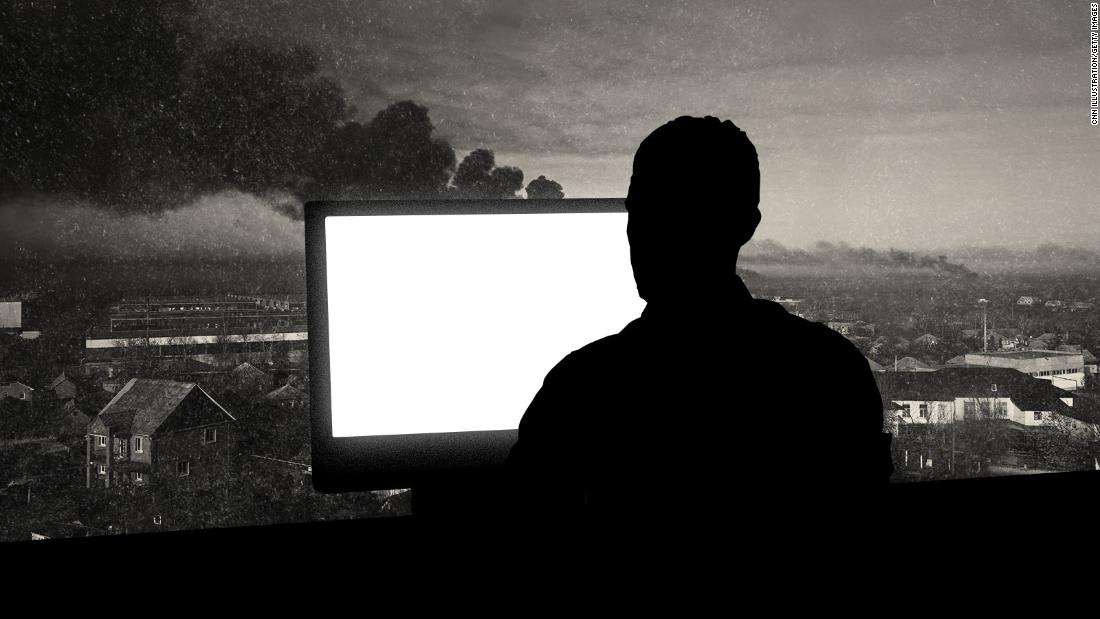
This was their beloved home. But life in these Ukrainian towns will never be the same
From CNN's Mariya Knight, Sharif Paget and Travis Caldwell
Inna Sheremet remembers fondly walking her dog every day in the forests of Bucha, having lived in Ukraine her entire life.
But on February 24, at 5 a.m., she heard the explosions.
“I packed my things, took the dog and left,” Sheremet told CNN, escaping before her fifth-floor apartment was shelled and destroyed.
The life she once led — visiting friends, grilling kebabs next to her house, cycling around the city — was gone.
“My whole life before the war is destroyed,” Sheremet said. “All I have left is a small bag of clothes and a dog.”
CNN spoke with those who have had their entire lives uprooted since the war began more than a month ago. Their stories of the scarred landscapes where their hometowns once stood show how much has already been lost. But also what they’re fighting to protect, as Ukrainian forces continue to defy the Russian advance. Here’s what they have to say.
See their photos and read the full story here:
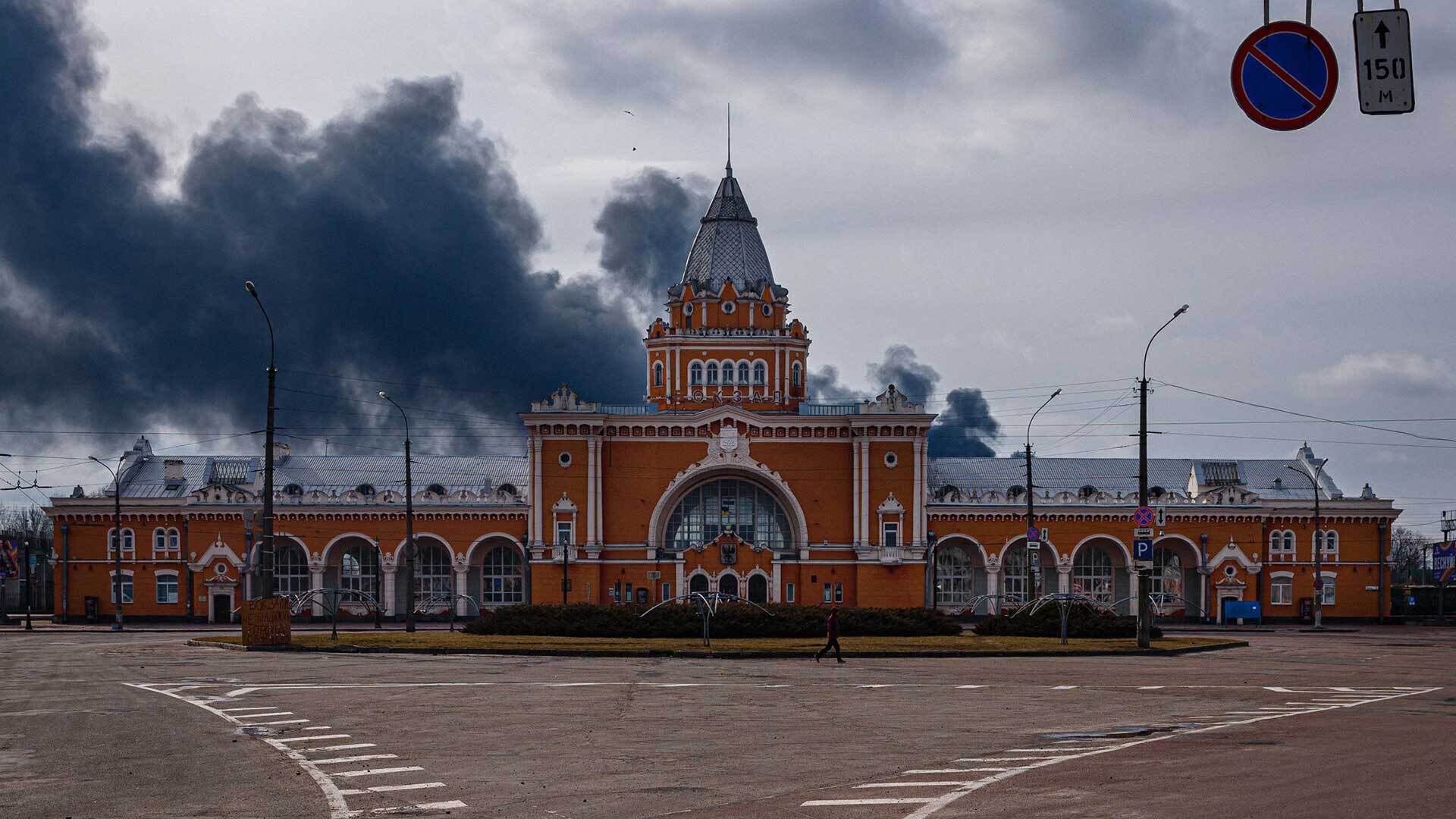
Analysis: Putin's lies and carnage cloud hopes for an end to Ukraine war
Analysis from CNN's Stephen Collinson
Russia insisted for weeks when massing more than 100,000 troops on Ukraine's borders that it had no plans to invade. Then it did. So it's not surprising that deep skepticism greeted its Tuesday announcement of a scaled-back offensive.
The US — like everyone — is desperate for a de-escalation of Moscow's onslaught, for humanitarian reasons and because it could ease fears of a spill-over US war with Russia.
But the experience of President Vladimir Putin's previous lies and propaganda, and of his brutality, clouded the first signs of progress between Ukrainian and Russian negotiators in Turkey. The treacherous path any ceasefire or peace deal would face, first to be implemented and then to become permanent, also tempered optimism in the West and Ukraine.
In the Cold War, the famous US mantra after nuclear arms reduction deals with the Kremlin was "trust but verify." In this conflict, the approach is exactly the opposite — verify and distrust. The shift reflects the stark suspicion toward the Russian President following his two decades of anti-West leadership. It is also born of revulsion at vicious assaults on innocent civilians — in hospitals, apartment blocks and a theater used as a shelter — over the last month.
Read the full analysis here:
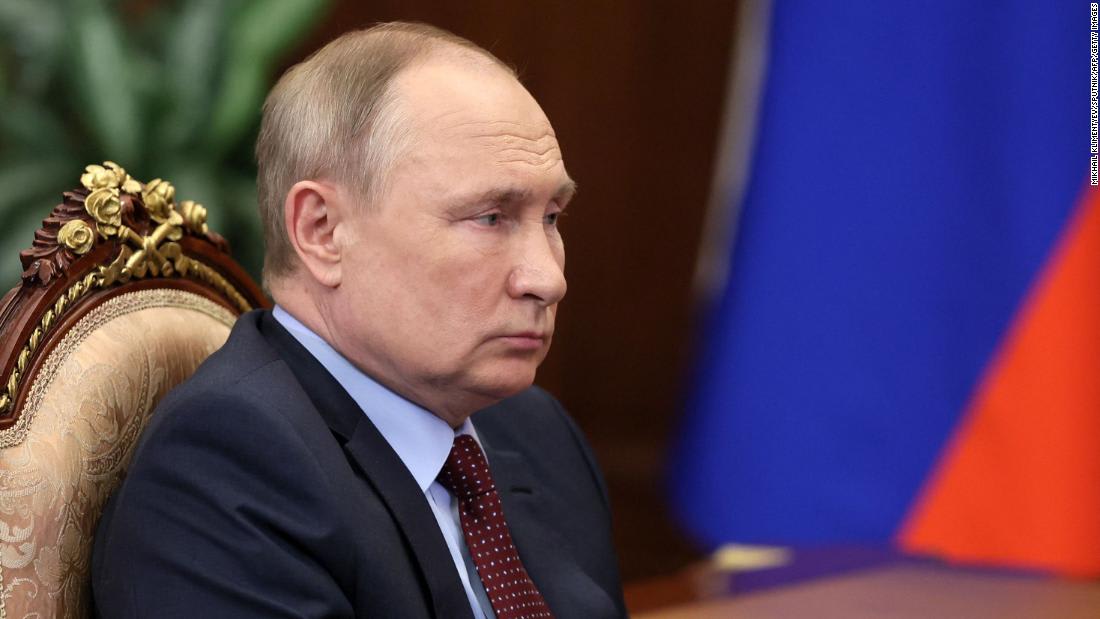
It's 7a.m. in Kyiv. Here's what to know
Russia said Tuesday it will reduce troop numbers and military operations around the Ukrainian capital, Kyiv, and northern city of Chernihiv — but US and Ukrainian officials have expressed skepticism about Moscow's claims.
If you're just joining us, here's the latest on the war in Ukraine:
- New images of destroyed cities: The full extent of the devastation in the city of Irpin is seen in new video taken by a Ukrainian NGO. It comes after Ukrainian forces pushed Russian troops out of the city in Kyiv's northwestern suburbs in the past 36 hours. Meanwhile satellite images show entire city blocks in central Mariupol have been obliterated — a level of destruction previously not seen in images of the besieged southern port city.
- Moscow's "pledge": Russia's Defense Ministry said it will "drastically reduce military activity" on two fronts — Kyiv and Chernihiv — following in-person talks between Russia and Ukraine in Istanbul. US officials are skeptical of Russia's claims, with the Pentagon cautioning that troop movement near Kyiv is "a repositioning," not a withdrawal. "I don't read anything into it until I see what their actions are," US President Joe Biden said. Meanwhile, Ukraine's President said Moscow's claims about scaling back military activity in parts of the country "don't drown out the explosions of Russian bombs."
- UN nuclear watchdog visit: The director general of the International Atomic Energy Agency is in Ukraine for urgent talks with the Ukrainian government about the safety of the country's nuclear facilities. The agency said the talks will center on plans to deliver "urgent technical assistance to ensure the safety and security of the country’s nuclear facilities and help avert the risk of an accident that could endanger people and the environment."
- Global food crisis: Russia’s war has created a critical food shortage in Ukraine, with ripple effects of a “global food crisis” felt worldwide, US Deputy Secretary of State Wendy Sherman said. Russia has bombed at least three civilian ships carrying goods out of the Black Sea and the Russian Navy is blocking access to Ukraine’s ports, cutting off the country's ability to export grain, she said.
- On the ground: An official in the Izyum city council's office said the humanitarian situation in the eastern city "gets worse" every day and people have not received aid since March 14. Late Tuesday night, major artillery and rocket fire were heard in Kyiv, according to a CNN crew on the ground. Intense fighting continued around the suburbs of Kyiv Tuesday, especially in the northwest and northeast of the city. And at least 12 people were killed in a Russian strike on the regional military governor's office in Mykolaiv, emergency services said.
- Refugees: More than 10 million Ukrainians — including more than half the country's children — have fled their homes since the onset of the war last month, a UN representative said. Of those, 6.5 million are internally displaced and 3.9 million have crossed into neighboring countries.
New satellite images show entire city blocks destroyed in central Mariupol
From CNN’s Paul P. Murphy
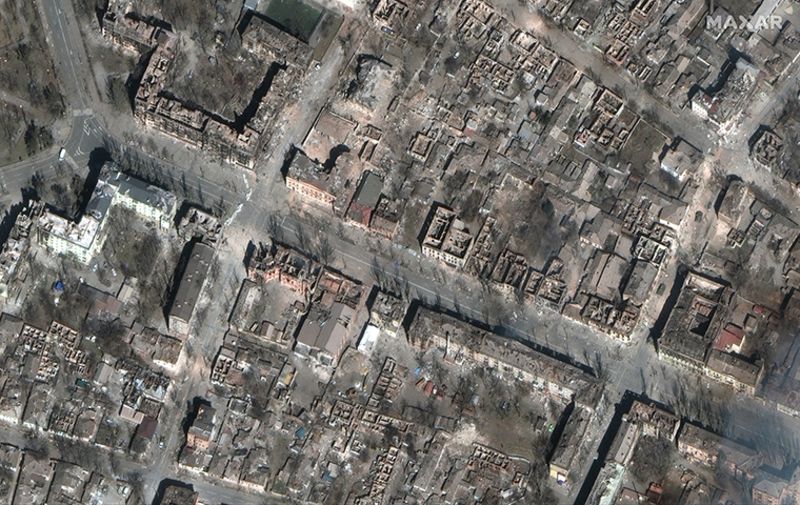
Entire city blocks in central Mariupol have been obliterated — a level of destruction previously not seen in the besieged Ukrainian city — new satellite images from Maxar Technologies show.
With communications in and out of Mariupol non-existent, the images are the first visual update in the past few days
The images confirm what sensory satellite data from NASA has picked up: dozens of explosions have taken place in and around Mariupol.
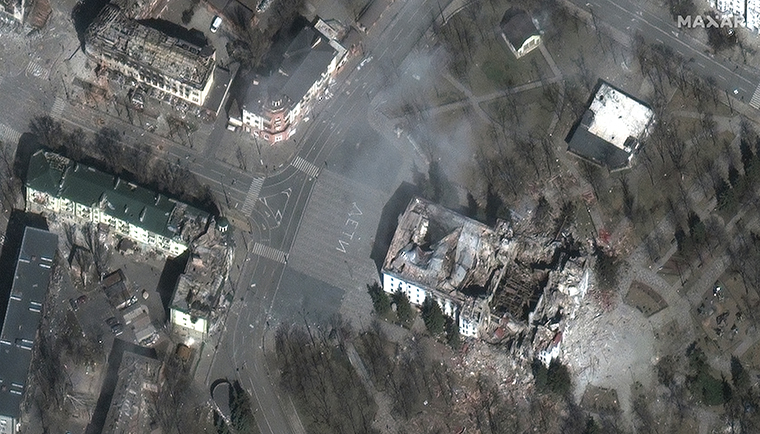
The area just east of the bombed drama theater — where authorities believe about 300 people died in a Russian attack — is in ruins. In one satellite image, the roofs are either missing or have been significantly damaged on nearly every building.
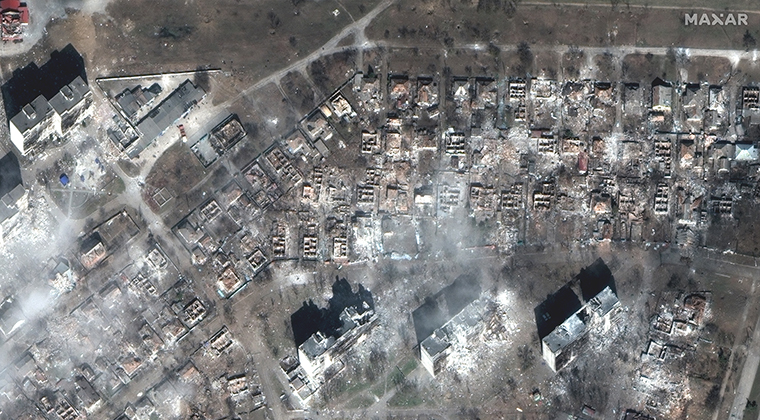
In eastern Mariupol, another residential area has sustained similar destruction. Every house surrounding two separate apartment complexes is destroyed.
Another sprawling apartment complex in southeastern Mariupol, near the Azovstal iron and steel works factory, has been destroyed. CNN has previously confirmed that Russian troops and Chechen fighters have been active near that apartment complex.
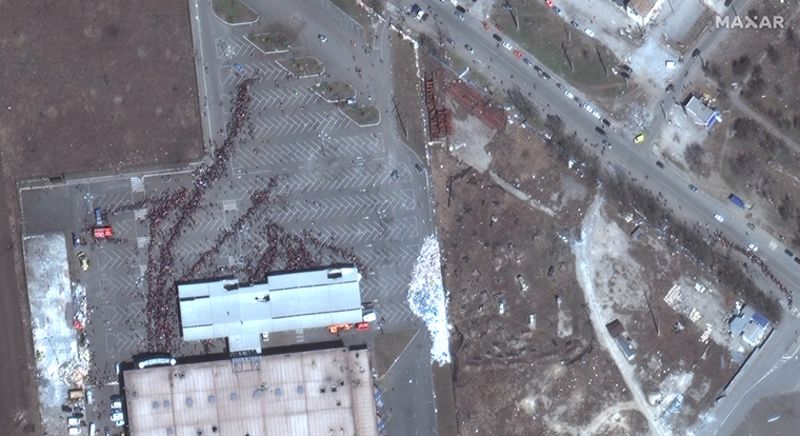
The satellite images also show survivors of the carnage.
Outside the Metro supermarket in western Mariupol, hundreds of people are seen gathered in lines, waiting to enter the building. Its roof has holes from military strikes.
Mariupol's mayor estimated that as many as 160,000 people remain in the city as of Monday.
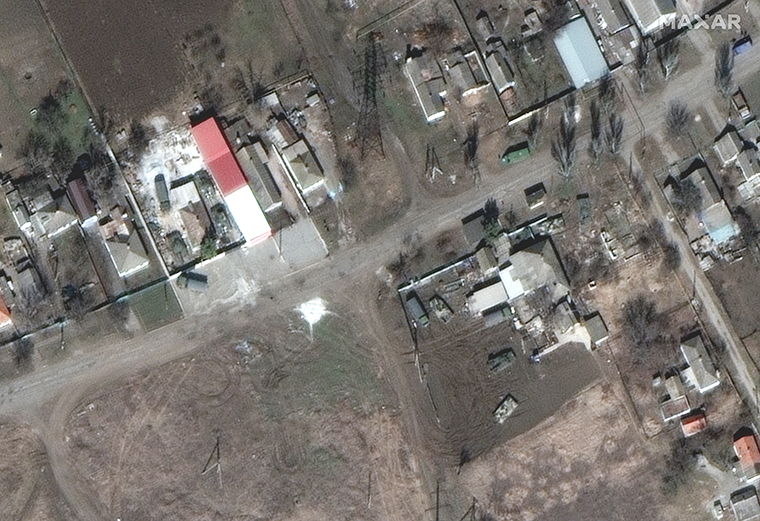
Just northeast of the city, Russian military positions are seen, including vehicles parked directly next to homes. Towed artillery positions are seen just northeast of those vehicles.
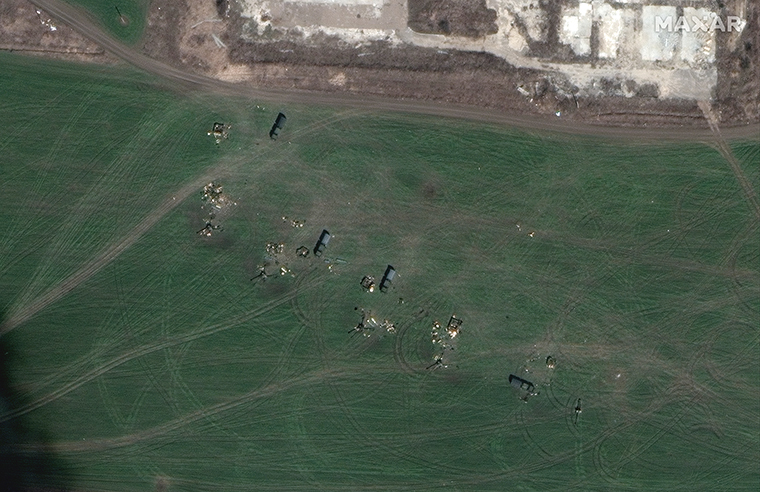
The UN's nuclear watchdog chief is in Ukraine. Here's what we know
Rafael Mariano Grossi, director general of the International Atomic Energy Agency (IAEA), is in Ukraine for urgent talks with the Ukrainian government about the safety of the country's nuclear facilities.
Here's what we know:
Grossi posted a photo of himself on Twitter standing in front of an official UN vehicle on Tuesday, saying he had "just crossed the border into Ukraine to start the IAEA's mission to ensure the safety and security of the country's nuclear facilities."
- In a statement, the IAEA said Grossi is in Ukraine to "initiate prompt safety and security support to Ukraine’s nuclear facilities."
- Talks with senior government officials will center on the agency's plans to deliver "urgent technical assistance" and "help avert the risk of an accident that could endanger people and the environment," the statement said.
- Grossi's location in Ukraine has not been disclosed.
Some context:
- Russian forces have occupied Ukraine's largest nuclear power plant, Zaporizhzhia, since March 4, and the Chernobyl nuclear power plant — site of the infamous 1986 accident — since Feb. 24.
Safety fears:
- There are concerns over the safety of the nuclear sites, reactors and staff at the facilities.
- Grossi said the conflict is "putting Ukraine’s nuclear power plants and other facilities with radioactive material in unprecedented danger."
Preventing a nuclear accident:
- Grossi warned "there have already been several close calls" at Ukraine's nuclear facilities since Russia's invasion began.
- He is set to visit one of the country's power plants during his trip.
- His visit comes after Ukraine "requested our assistance for safety and security," Grossi said.
"We can’t afford to lose any more time," he said, adding that the IAEA's expertise is needed urgently to prevent any nuclear accident.
Nuclear sites in Ukraine:
- The country has 15 nuclear power reactors at four plants, as well as the Chernobyl plant.
- The IAEA said eight reactors continue to operate, including two at the Russian-controlled Zaporizhzhia plant, three at Rivne, one at Khmelnitsky, and two at the South Ukraine facility. The other reactors remain closed for regular maintenance.
- The watchdog said it has drawn up "concrete and detailed plans for safety and security assistance."
Several scares:
- On March 23, the Ukrainian government saiddestroyed a lab close to the Chernobyl nuclear power plant, which was used to monitor radioactive waste. The government agency also reported that samples of radionuclides — unstable atoms that can emit high levels of radiation — had been removed from the lab.
- Staff working at Chernobyl on the day it was captured only recently had the chance to go home, three weeks after they were due to rotate with an incoming team. Workers had been confined to the plant for 10 days and were “exhausted, both mentally and emotionally, but mainly physically," the local mayor said.
- Earlier this month, the site was forced to use power from emergency diesel generators for several days, before being reconnected to the national electricity grid after repairs to damaged lines.
- Ukraine’s government also warned of several fires close to the plant, which it said had probably been triggered by Russian artillery or arson.
FIRST ON CNN: Video shows extensive destruction in deserted Irpin
From CNN's Paul P. Murphy and David Lauterbach
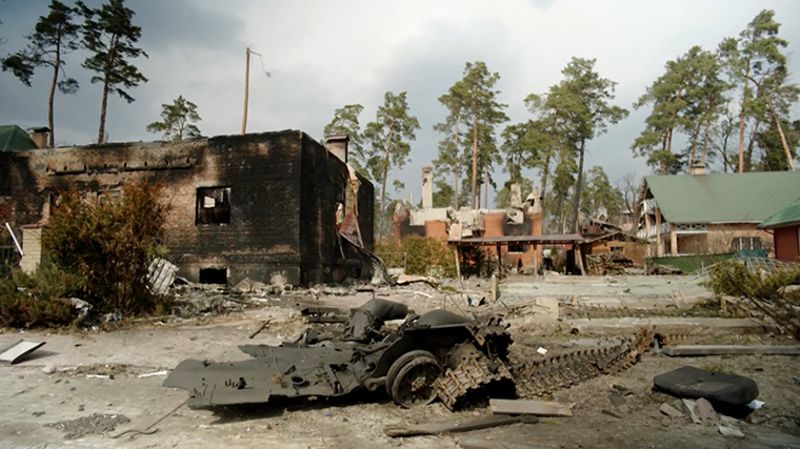
The full extent of the devastation in the city of Irpin can be seen in new video taken by a Ukrainian NGO and provided to CNN.
It comes after Ukrainian forces pushed Russian troops out of the city in Kyiv's northwestern suburbs in the past 36 hours.
Some context: CNN has geolocated and verified the authenticity of the video taken by Ukrainian Witness Project, which is chronicling the war in Ukraine. This is one of the first videos in weeks from the eastern part of Irpin, as intense fighting there made it impossible to access safely.
On Monday, Irpin's mayor said Ukainian troops has reclaimed the area from Russian forces.
A wasteland: The video, filmed Tuesday, shows the wooded suburb akin to an apocalyptic wasteland.
Wind passing through the remaining trees and the clanging of sheet metal against metal is the only thing that's heard in the video, save for the dull boom of a military strike in the distance.
Ongoing shelling: Russia claims it will reduce military activity near Kyiv, but CNN has seen no sign that's happening yet as military strikes continued on Tuesday evening around the Ukrainian capital.
The video shows that while the gunfire, the bombs and the war may have — for now — left Irpin, so has most of the life in the city.
Bodies in streets: Aside from debris and destruction of buildings, the bodies of civilians are the only thing in the streets.
An individual in a leather jacket, who had apparently been pulling a small cart when killed, is seen face down on the ground. Another casualty is shown on their back in the backseat of a bullet-ridden car.
There are at least five bodies in the video. It is unclear how and when they died.
The video shows they remain where they were struck dead in the street, in wind-filled silence, among the charred buildings and splintered trees.
Watch: Graphic video shows extensive destruction in Irpin
Top US general in Europe: An intelligence gap could have caused the US to overestimate Russia's military
From CNN's Barbara Starr, Ellie Kaufman and Jeremy Herb
The top US general in Europe said Tuesday there "could be" a gap in US intelligence gathering that caused the US to overestimate Russia's capability and underestimate Ukraine's defensive abilities before Russia attacked Ukraine.
When Russia launched its invasion of Ukraine last month, US intelligence assessed that the country-wide assault could lead to Kyiv falling into Russian hands within days. But Russia's military has been bogged down around the capital as the war has entered its second month, beleaguered by sustainability and logistics problems, along with an unexpected stiff resistance from Ukrainian fighters.
Testifying at a Senate Armed Services Committee hearing Tuesday, US European Command chief Gen. Tod Wolters was asked by Sen. Roger Wicker, a Mississippi Republican, if there was an intelligence gap that caused the US to overestimate Russia's strength and underestimate the Ukrainian defenses.
"There could be," Wolters responded. "As we've always done in the past, when this crisis is over with, we will accomplish a comprehensive after-action review in all domains and in all departments and find out where our weak areas were and make sure we can find ways to improve, and this could be one of those areas."
While US intelligence was spot on in predicting Russia was planning to invade Ukraine — which the Biden administration aggressively released to turn global sentiment against the Kremlin — the intelligence community did not assess the poor performance of the Russian military.
Read more:
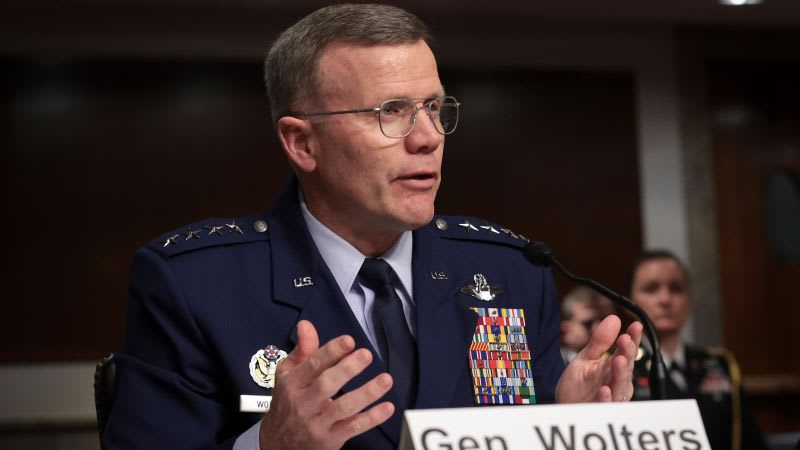

 Landwebs
Landwebs 







